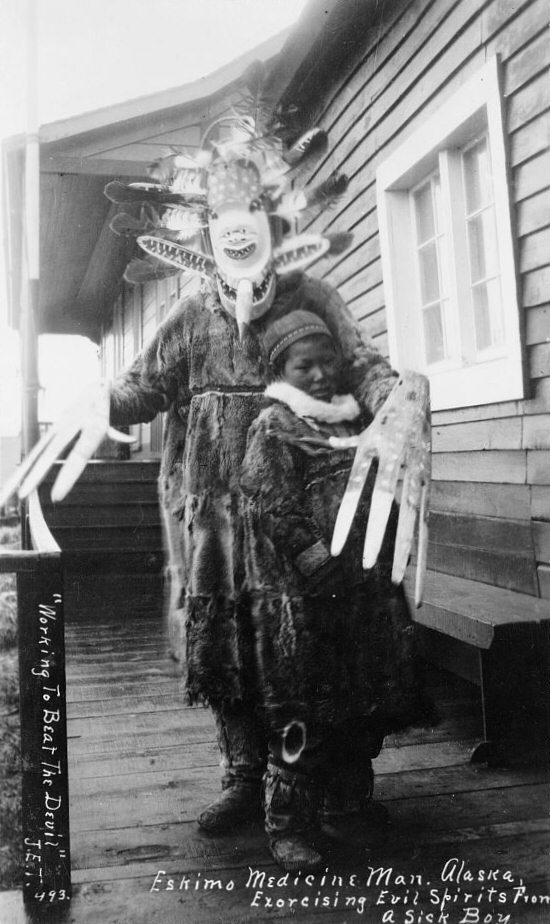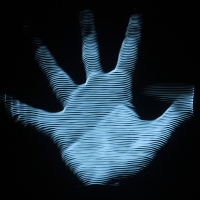Go outside. Shut the door.
Posted in Text on September 27th, 2008 by admin
“Go outside. Shut the door.” Brian Eno, Oblique Strategies
I had a strange conversation earlier this week in Croatia, in which I was described as being “non-aligned” in the same way that Tito’s Yugoslavia was non-aligned, playing the USA and the USSR against each other while taking money from both. This distinctly post-Yugo metaphor summed up the position my friend saw me taking in his binary opposition between “self centered artists” and social activists–i.e. that I take from both the open source community and the gallery/festival arts scene.
My friend made this sound quite intentional, as if it were a conscious choice, when the reality is simply that the more clearly I see and hear the things I want to create in my head, the more obvious it becomes what I have to do to create them. In fact, one should be very careful what is visualized! Case in point: on the way up to the old fortress of Kalnik, my friend mentioned, feeling foolishly like someone’s parent, to watch out for a certain snake, the poskok. The old people in his town said that it was the most dangerous snake in all Europe, and could even leap several meters. But of course he had never seen one. Climbing the stone steps, I was drawn to a huge bush alive with the sound of the last of summer’s bees…and narrowly missed stepping on our friend the poskok, who turned out to be a rather large specimen of Vipera ammodytes, the horned- or long-nosed-viper:
Lesson of the Poskok–be careful what you wish for!
Rather than struggle to find a word which describes my lack of interest in committing to and feeling obligated to either path or of getting involved in group or political dynamics in general, I turned I-Ching-like to the last two books I’ve been reading, and came up with some things like appropriate responses…
From Herzog on Herzog – Edited by Paul Cronin (“borrowed” from Museum de Paviljoens, Almere, NL)
[Paul Cronin:]Tell me about your ideal film school.
[Werner Herzog:] …let me say here that there are some very basic skills that any filmmaker must have. First of all, learn languages. One also needs to be able to type and to drive a car. It is like the knights of old who had to be able to ride, wield a sword and play the lute. At my utopian film academy I would have the students do athletic things with real physical contact, like boxing, something that would teach them to be unafraid. I would have a loft with a lot of space where in one corner would be a boxing ring. Students would train every evening form 8 to 10 with a boxing instructor: sparring, somersaults (backwards and forwards), juggling, magic card tricks. Whether or not you would be a filmmaker by the end I do not know, but at least you would come out as an athlete. My film school would allow young people who want to make films to experience a certain excitement of the mind. This is what ultimately creates films and nothing else. It is not technicians that film schools should be producing, but people with a real agitation of mind. People with spirit, with a burning flame within them.
[In the] late 1960s, revolution was in the air, yet you seemed to ignore the political fervor. Is that why you were branded a fascist after [Even Dwarfs Started Small] came out?
I was basically accused of ridiculing the world revolution with Even Dwarfs rather than proclaiming it. Actually, that is probably the one thing they might have been right about. The film was made in 1968 and 1969 a the height of the student revolt, and several over-zealous left-wingers told me my film was fascistic because it showed a ridiculous failed revolt with dwarfs. They insisted that when you portray a revolution you have to show a successful revolution, and as Even Dwarfs does not do this, for them it was clearly made by a fascist… Anyway I told these agitators that the film had absolutely nothing to do with the 1968 movements, that they were blinded by zealousness and that if they looked at the film twenty years down the line they might just see a more truthful representation of what happened in 1968 than in most other films. I think that annoyed them even more. It comes quite simply down to this: nightmares and dreams do not follow the rules of political correctness.
Do you ever get bored?
No, never. The word is not even in my vocabulary. I seem to scare and astonish my wife by being capable of standing staring out of the window for days at a time, even when there is nothing happening out there. I may look catatonic, but not so inside. There might be storms raging inside. I think it was Wittgenstein who talked about being inside a house and seeing a figure outside strangely flailing about. From inside you cannot see what storms are raging out there, so you find the figure funny.
From Primitive Mythology – Joseph Campbell (purchased at unknown second hand shop, Sheffield, UK)
The Fifth Danish Thule Expedition (1921-1924) across arctic North America, from Greenland to Cape Prince of Wales, Alaska, was conducted by the seasoned scholar and explorer Knud Rasmussen, who, in the course of this extraordinary journey, met and won the confidence of a number of Eskimo shamans…in the harsh Baker Lake area, among the so-called Caribou Eskimos (who are as primitive as any people on earth), a ruthless, highly intelligent, socially independent savage named Igjugarjuk, who, when as a youth he wished to take to wife a girl whose family objected, went with his brother to lie in wait not far from the entrance to the young girl’s hut and from there shot down her father, mother, brothers, and sisters–seven or eight in all–until only the girl remained; and, finally at Nome, an old scalawag named Najagneq, who had just been released from a year in jail for having killed seven or eight members of his community…
It is worth considering for a moment the character of these rugged shamans, lest we suppose that the highest religious realizations are vouchsafed only for the saintly.
Dr. H. Osterman, in his report of the Fifth Thule Expedition, wrote:
This man [Najagneq] of “ten-horse-power” had authority in his speech, and he completely swayed those to whom he spoke. He had conceived a curious feeling of mild goodness for Dr. Rasmussen, and when they were alone together he was not afraid to admit that he had pulled the legs of his countrymen somewhat. He was no humbug, but a solitary man accustomed to hold his own against many and therefore had to have his little tricks. But whenever his old visions and his ancestral beliefs were mentioned, his replies, which were brief and to the point, bore the impress of imperturbable gravity…
[Dr. Rasmussen adds:]
Najagneq’s words sound like an echo of wisdom we admired in the old shamans we encountered everywhere in our travels–in harsh King William Land or in Aua’s festive snow hut at Hudson Bay, or in the primitive Eskimo Igurgarjuk, whose pithy maxim was:
“The only true wisdom lives far from mankind, out in the great loneliness, and it can be reached only through suffering. Privation and suffering alone can open the mind of a man to all that is hidden to others.”
[Rasmussen received from Igjugarjuk] a full account of the ordeal through which he had acquired his shamanistic powers. When young, he had been visited constantly by dreams that he could not understand.
Strange unknown beings came and spoke to him, and when he awoke, he saw all the visions of his dreams so distinctly that he could tell his fellows all about them. Soon it became evident to all that he was destined to become an angakoq [a shaman] and an old man named Perqanaoq was appointed his instructor. In the depth of winter, when the cold was most severe, Igjugarjuk was placed on a small sledge just large enough for him to sit on, and carried far away from his home to [a tiny snow hut]… No food or water was given to him; he was exhorted to think only of the Great Spirit and of the helping spirit that should presently appear–and so he was left to himself and his meditations…
Igjugarjuk declared that the strain of those thirty days of cold and fasting was so severe that he “sometimes died a little”. During all the time he thought only of the Great Spirit, and endeavored to keep his mind free from all memory of human beings and everyday things… [Five months later] the fasting was then repeated; for such fasts at frequent intervals are the best means of attaining to knowledge of hidden things. As a matter of fact, there is no limit to the period of study; it depends on how much one is willing to suffer and anxious to learn.





